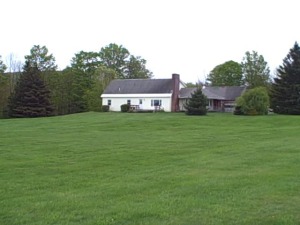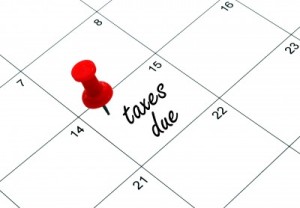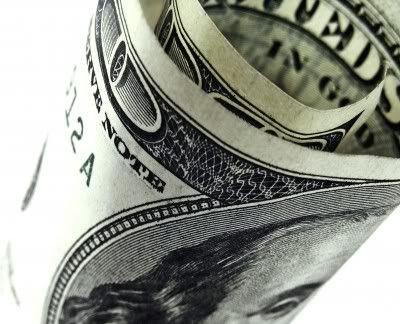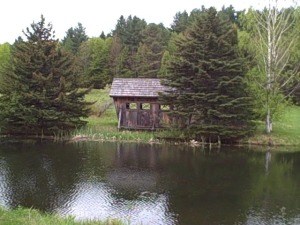


Just Listed! 4 Bedroom, 3 Bath – 21.46 acres, plus a Covered Bridge!

Offered for $650,000 – including the bridge and pond.
Tax Deductions For Okemo Mountain Second Homeowners
The day all Americans dread, tax day is only a few weeks away. If you are an Okemo Mountain second homeowner, you don’t want to miss out on any of the deductions that owning your second home provides. The following tax tips for Okemo Mountain csecond home buyers is courtey of H&R Block.

Second Home Deductions
If you take out a mortgage to buy, construct or substantially improve a second home, the interest is deductible if you itemize deductions. Your deduction may be limited if the mortgage exceeds the fair market value of the home or if the mortgages on your main home and your second home exceed $1 million ($500,000 if you’re Married Filing Separately). These limits do not apply to mortgages taken out before Oct. 14, 1987 (called grandfathered debt), but grandfathered debt reduces the $1 million and $500,000 limits.
If you take out a home equity loan or line of credit on your second home, the interest is fully deductible unless the mortgage exceeds the fair market value of the home reduced by the amount of the mortgages, including grandfathered debt, as previously described, or if the mortgages of this type on your main home and second home exceed $100,000 ($50,000 if Married Filing Separately).
Real estate taxes and points you pay over the life of a mortgage to acquire a second home are deductible if you itemize deductions. Points you pay on a mortgage to acquire a second home are also deductible over the life of the loan. If you refinance or sell the home before the mortgage is paid off, you can deduct in the year of sale or refinancing any points you didn’t previously deduct.
Renting Your Second Home
If you use the home as a residence and rent it for less than 15 days during the year, you don’t have to report the rental income. It’s considered a residence if you (or a family member) use the home for personal purposes for more than the greater of 14 days or 10% of the number of days that you rent the home at fair rental value. You may not deduct any expenses attributable to the rental, but you may deduct interest and taxes if you itemize your deductions.
If you use the home as a residence and rent it for 15 days or more, you must report the rental income. You may deduct your interest and taxes as described above. But you can deduct other rental expenses (including depreciation) only up to the amount of the income reduced by the deductions for interest and taxes. Any rental expenses not deductible under this rule are carried to the following year, when they are again subject to this limit.
If you don’t use the home as a residence, the above rules don’t apply. You report your income and expenses in the same manner as for other rental property, and you can’t deduct expenses other than interest, taxes and casualty losses attributable to your personal use of the home.
Selling Your Second Home
If you sell your second home, the gain will be taxed as capital gain, long-term if you owned it for more than a year and short-term if you owned it 1 year or less. A loss on the sale can’t be deducted. If the second home was rented for profit, gain generally is taxed as capital gain and a loss can be deducted. The part of the gain attributable to depreciation is taxed at a maximum rate of 25%. If you used the home for personal purposes and rented it, you have to treat the sale as part personal, part business.
If the second home was your main home for at least 2 years during the 5-year period ending on the date of sale, you can exclude up to $250,000 of the gain (up to $500,000 if Married Filing Jointly and you both used the home as your main home for the required period). You can’t claim the exclusion if you sold another home within the 2-year period ending on the date of sale and claimed the exclusion for that sale.
If you don’t meet the 2-year ownership or use requirement, you may claim the exclusion only if you sell the home because of a change in health, place of employment, or another “unforeseen circumstance.” In this situation, the maximum exclusion will be reduced. You may not exclude any gain attributable to depreciation you claimed after May 6, 1997.
If you sell a second home and use it other than as a principal residence (nonqualified use) at any time after 2008, the gain eligible for the exclusion may be limited. For this purpose, nonqualified use does not include:
- Any nonqualified use before 2009.
- Any period during the 5-year period that is after the last period of use as a principal residence.
- A period of temporary absence of up to 2 years for reasons of health, employment and unforeseen circumstances.
- Any period (not to exceed 10 years) during which the taxpayer or spouse was serving on qualified official extended duty.
This post is not meant to give tax advice to Okemo Mountain second homeowners. Please consult your account or tax advisor with any questions you have.
Is My Okemo Mountain Second Home Tax Deductible
Is My Okemo Mountain Second Home Tax Deductible?
This is the season when Okemo Mountain second homeowners are wondering just what second home expenses can be deducted on their federal income taxes. The best way to share this information with you is to share with you an article from Kiplinger.com. This should answer all Okemo second homeowner questions:
Mortgage interest. If you use the place as a second home — rather than renting it out as a business property — interest on the mortgage is deductible just as interest on the mortgage on your first home is. You can write off 100% of the interest you pay on up to $1.1 million of debt secured by your first and second homes and used to acquire or improve the properties. (That’s a total of $1.1 million of debt, not $1.1 million on each home.) The rules that apply if you rent the place out are discussed later.
Property taxes. You can deduct property taxes on your second home, too. In fact, unlike the mortgage interest rule, you can deduct property taxes paid on any number of homes you own.
If you rent the home. Lots of second-home buyers rent their property part of the year to get others to help pay the bills. Very different tax rules apply depending on the breakdown between personal and rental use.
If you rent the place out for 14 or fewer days during the year, you can pocket the cash tax-free. Even if you’re charging $5,000 a week, the IRS doesn’t want to hear about it. The house is considered a personal residence, so you deduct mortgage interest and property taxes just as you do for your principal home.
Rent for more than 14 days, though, and you must report all rental income. You also get to deduct rental expenses, and that gets complicated because you need to allocate costs between the time the property is used for personal purposes and the time it is rented.
If you and your family use a beach house for 30 days during the year and it’s rented for 120 days, 80% (120 divided by 150) of your mortgage interest and property taxes, insurance premiums, utilities and other costs would be rental expenses. The entire amount you pay a property manager would be deductible, too. And you could claim depreciation deductions based on 80% of the value of the house. If a house is worth $200,000 (not counting the value of the land) and you’re depreciating 80%, a full year’s depreciation deduction would be $5,800.
You can always deduct expenses up to the level of rental income you report. But what if costs exceed what you take in? Whether a loss can shelter other income depends on two things: how much you use the property yourself and how high your income is.
If you use the place more than 14 days, or more than 10% of the number of days it is rented — whichever is more — it is considered a personal residence and the loss can’t be deducted. (But because it is a personal residence, the interest that doesn’t count as a rental expense — 20% in our example — can be deducted as a personal expense.)
If you limit personal use to 14 days or 10%, the vacation home is considered a business and up to $25,000 in losses might be deductible each year. That’s why lots of vacation homeowners hold down leisure use and spend lots of time “maintaining” the property. Fix-up days don’t count as personal use. The tax savings from the loss (up to $7,000 a year if you’re in the 28% tax bracket) help pay for the vacation home. Unfortunately, holding down personal use means forfeiting the write-off for the portion of mortgage interest that fails to qualify as either a rental or personal-residence expense.
We say such losses might be deductible because real estate losses are considered “passive losses” by the tax law. And, passive losses are generally not deductible. But, there’s an exception that might protect you. If your adjusted gross income (AGI) is less than $100,000, up to $25,000 of such losses can be deducted each year to offset income such as your salary. (AGI is basically income before subtracting your exemptions and deductions.) As income rises between $100,000 and $150,000, however, that $25,000 allowance disappears. Passive losses you can’t deduct can be stored up and used to offset taxable profit when you ultimately sell the vacation house.
Tax-free profit.Although the rule that allows home owners to take up to $500,000 of profit tax-free applies only to your principal residence, there is a way to extend the break to your second home: make it you principal residence before you sell. That’s not as wacky as it might sound.
Some retirees, for example, are selling the big family home and moving full time into what had been their vacation home. Once you live in that home for two years, up to $500,000 of profit can be tax free. (Any profit attributable to depreciation while you rented the place, though, would be taxable. Depreciation reduces your tax basis in the property and therefore increases profit dollar for dollar.)
But Congress is clamping down on this break for taxpayers who convert a second home into a principal residence after 2008. A portion of the gain on a subsequent sale of the home will be ineligible for the home-sale exclusion of up to $500,000, even if the seller meets the two-year ownership and use tests. The portion of the profit that’s subject to tax is based on the ratio of the time after 2008 when the house was a second home or a rental unit to the total time you owned it.
So if you have owned a vacation home for 18 years and make it your main residence in 2011 for two years before selling it, only 10% of the gain (two years of non-qualified second home use divided by 20 years of total ownership) is taxed. The rest qualifies for the exclusion of up to $500,000.
Learn about how you can buy an Okemo Mountain second home by visiting ISellVermontRealEstate.com.
Buying Okemo Vacation Home
Everyday life can get crazy at times, many people fantasize about running off to their own personal retreat right here at Okemo. But how do you know which Okemo vacation home is best for you?
Choosing a location
Do you want to be in the middle of a all the activity, or enjoy the peace and quiet of a secluded location? Is a condo at the mountain your cup of tea or a farmhouse tucked away in the woods? Whichever environment you prefer, here are some things you should consider:
- Popularity. A house in a hot vacation market will usually cost more than a place off the beaten path. At the same time, continued popularity may help you profit from appreciation.
- Proximity to your home. If you plan to visit regularly, look for a place that’s easy to get to.
- Rental possibilities. If you’re hoping to offset some costs by renting the home for part of the year, find out about seasonal demand for rentals in the area.
Maintaining your getaway
Regular upkeep is more difficult with a vacation home than with your primary residence, but no less important. The value of the home, both as an investment and as a place you enjoy visiting, depends on good maintenance.
If your primary residence is not far from Okemo, you may want to make weekly visits to mow the lawn, water the garden, clean the gutters or shovel snow. If doing it yourself is impractical, consider hiring a vacation property management company to provide maintenance services during the times when you’re not using the home.
Visit ISellVermontRealEstate.com to learn more about Okemo and buying a vacation home or give me a call for more personal service.
Okemo Mountain Second Home Tax Breaks
Okemo Mountain Second Home Tax Breaks
If you are in the market for a second home, congratulations! Not only is Okemo Mountain a great place to ski and relax, you also can garner some tax benefits. Here are some tax breaks as spelled out by Kiplinger.com:
Mortgage interest. If you use the place as a second home — rather than renting it out as a business property — interest on the mortgage is deductible just as interest on the mortgage on your first home is. You can write off 100% of the interest you pay on up to $1.1 million of debt secured by your first and second homes and used to acquire or improve the properties. (That’s a total of $1.1 million of debt, not $1.1 million on each home.) The rules that apply if you rent the place out are discussed later.
Property taxes. You can deduct property taxes on your second home, too. In fact, unlike the mortgage interest rule, you can deduct property taxes paid on any number of homes you own.
If you rent the home. Lots of second-home buyers rent their property part of the year to get others to help pay the bills. Very different tax rules apply depending on the breakdown between personal and rental use.
If you rent the place out for 14 or fewer days during the year, you can pocket the cash tax-free. Even if you’re charging $5,000 a week, the IRS doesn’t want to hear about it. The house is considered a personal residence, so you deduct mortgage interest and property taxes just as you do for your principal home.
Rent for more than 14 days, though, and you must report all rental income. You also get to deduct rental expenses, and that gets complicated because you need to allocate costs between the time the property is used for personal purposes and the time it is rented.
If you and your family use a beach house for 30 days during the year and it’s rented for 120 days, 80% (120 divided by 150) of your mortgage interest and property taxes, insurance premiums, utilities and other costs would be rental expenses. The entire amount you pay a property manager would be deductible, too. And you could claim depreciation deductions based on 80% of the value of the house. If a house is worth $200,000 (not counting the value of the land) and you’re depreciating 80%, a full year’s depreciation deduction would be $5,800.
You can always deduct expenses up to the level of rental income you report. But what if costs exceed what you take in? Whether a loss can shelter other income depends on two things: how much you use the property yourself and how high your income is.
If you use the place more than 14 days, or more than 10% of the number of days it is rented — whichever is more — it is considered a personal residence and the loss can’t be deducted. (But because it is a personal residence, the interest that doesn’t count as a rental expense — 20% in our example — can be deducted as a personal expense.)
If you limit personal use to 14 days or 10%, the vacation home is considered a business and up to $25,000 in losses might be deductible each year. That’s why lots of vacation homeowners hold down leisure use and spend lots of time “maintaining” the property. Fix-up days don’t count as personal use. The tax savings from the loss (up to $7,000 a year if you’re in the 28% tax bracket) help pay for the vacation home. Unfortunately, holding down personal use means forfeiting the write-off for the portion of mortgage interest that fails to qualify as either a rental or personal-residence expense.
We say such losses might be deductible because real estate losses are considered “passive losses” by the tax law. And, passive losses are generally not deductible. But, there’s an exception that might protect you. If your adjusted gross income (AGI) is less than $100,000, up to $25,000 of such losses can be deducted each year to offset income such as your salary. (AGI is basically income before subtracting your exemptions and deductions.) As income rises between $100,000 and $150,000, however, that $25,000 allowance disappears. Passive losses you can’t deduct can be stored up and used to offset taxable profit when you ultimately sell the vacation house.
Tax-free profit.Although the rule that allows home owners to take up to $500,000 of profit tax-free applies only to your principal residence, there is a way to extend the break to your second home: make it you principal residence before you sell. That’s not as wacky as it might sound.
Some retirees, for example, are selling the big family home and moving full time into what had been their vacation home. Once you live in that home for two years, up to $500,000 of profit can be tax free. (Any profit attributable to depreciation while you rented the place, though, would be taxable. Depreciation reduces your tax basis in the property and therefore increases profit dollar for dollar.)
But Congress is clamping down on this break for taxpayers who convert a second home into a principal residence after 2008. A portion of the gain on a subsequent sale of the home will be ineligible for the home-sale exclusion of up to $500,000, even if the seller meets the two-year ownership and use tests. The portion of the profit that’s subject to tax is based on the ratio of the time after 2008 when the house was a second home or a rental unit to the total time you owned it.
So if you have owned a vacation home for 18 years and make it your main residence in 2011 for two years before selling it, only 10% of the gain (two years of non-qualified second home use divided by 20 years of total ownership) is taxed. The rest qualifies for the exclusion of up to $500,000.
Learn more about Okemo Mountain second homes by visiting ISellVermontRealEstate.com or give me a call for more personal service.
5 Reasons To Buy Okemo Mountain Vacation Home
5 Reasons To Buy Okemo Mountain Vacation Home
With the stock market in turmoil, many people are looking for alternative investments. Most of us are scared to death of jumping into the market right now and wondering what to do with their nest egg…other than sticking it under the mattress.

Okemo Mountain home values are down right now, but history shows they always rebound, making a vacation home a great long-term investment. Christine doesn’t recommend buying with the thought of flipping it in a year, but buying as a long term investment.
You are probably asking why buying a vacation home is a good investment.
First, there are deals to be had. Prices are lower than a few years ago during the peak of the housing bubble. The excessive number of foreclosures is also keeping prices down and inventory up, making sellers more negotiable.
Interest rates also remain reasonably low, with rates hovering 6-6.5 percent. If you have good credit, there is mortgage money to be had.
Below are Christine Karpinski’s 5 Reasons Why the Vacation Home Rental Market Is Holding Strong…Even in our Weak Economy
1. It’s easy for consumers to find information on vacation homes. By visiting respectable websites travelers can quickly find the vacation home that’s right for them. HomeAway’s network of vacation rentals includes over 300,000 properties all over the world, making it possible for almost anyone to find one within a two- to three-hour driving distance from their home.
2. Vacation homes tend to be less expensive than hotel rooms. This is especially true if you’re traveling with extended family or a group of friends. HomeAway recently contrasted a three-bedroom vacation rental private condo in Orlando with a popular three-star hotel and found that the condo was cheaper by more than $1,700! “That’s a big difference, and in a tenuous economy it seems even bigger,” notes Karpinski.
3. When airfare gets expensive, people start taking road trips instead. Even with gas prices relatively high, it’s still far cheaper to drive a couple hundred miles to your mountain cabin than to fly to some lavish vacation destination. “Even with the bad economy, people need to take vacations,” says Karpinski. “In fact, psychologically, they may need to get away more than ever. A fairly inexpensive stay in a nearby vacation home is the perfect solution.”
4. The weak dollar makes U.S. tourist destinations attractive to European travelers, whose currency is still strong. “On my recent trip to Hawaii, I noticed a lot of German tourists,” notes Karpinski. “And when I speak to many of the vacation homeowners I work with, they confirm that they’ve encountered a surprisingly high number of European travelers lately.”
5. Business travelers still need a place to stay. When corporations must meet with business associates-who increasingly hail from overseas-they need good lodging solutions. Enter the vacation home. “More and more executives are putting their guests up in vacation homes instead of cramped, impersonal hotel rooms,” notes Karpinski. “It’s a far more comfortable option; plus many companies work out deals with homeowners whereby they can get ‘volume discounts.’ It’s a win/win for all parties involved.”
Learn more about buying a Okemo Mountain vacation home by visiting ISellVermontRealEstate.com or give us a call, 800-659-1819 #103.
Okemo Mountain VT Real Estate: Reverse 1031 Exchange Demand Rising

A slower Okemo Mountain VT real estate market is creating more of a demand for reverse 1031 exchanges. Properties are taking longer to sell making it difficult for sellers to adhere to 1031 exchange 180 day rules. But there is another option called a Reverse 1031 Exchange allowing for the roll-over of proceeds after closing on another property. Inman had a great article by Ilyce Glink addressing reverse exchanges. Read what she has to say:
Q: We are Canadian citizens who have owned a home in Fort Myers, Fla., for four years. There is no mortgage on the property.
We have put the property up for sale, and have made a down payment on a new house. We have bought and sold in the past, and I understand that as long as the new house is equal or higher in value, there are no capital gains taxes owed on the profits under IRS tax code 1031.
Okemo Mountain Real Estate: Is Cobuying A Second Home for You?
Okemo Mountain Real Estate: Is Cobuying A Second Home for You?
Craig Venezia is a nationally recognized expert on home mortgages, and the author of Buying a Second Home: Income, Getaway, or Retirement. Second-home ownership in Okemo Mountain is more popular than ever due to such factors as the shrinking American family, older and wealthier households, and new technologies for working from home. One out of every three homes purchased in the United States today is a second home.
If you dream of owning a second home, but realize it isn’t in your budget at the moment, cobuying an Okemo Mountain second home may be just what you need to make your dream a reality.
Listen to Craig Venezia’s podcast. It may help you decide if cobuying is right for you.
Learn more about buying an Okemo Mountain second home by visiting ISellVermontRealEstate.com.
Okemo Mountain Real Estate: Is Renting Your Vacation Home For You?
One of the biggest decision Ludlow and Okemo Mountain second-home buyers must decide is whether or not to rent their property when they are not using it. According to the U.S. Census Bureau, one-half of all second-home owners leave their home unoccupied for more than 330 days a year. The question becomes, will your vacation home be a financial burden or a financial cow with the rental income is can generate, thus paying for itself
Renting does have its pros and cons. Some owners don’t like the idea of ‘strangers’ in their home. Others don’t want the hassle of being a landlord, especially a long distance landlord. And then there is the decision to give up the prime vacation season for rental income. The flip side is renting your vacation home provides a stream of easy money.
EscapeHomes.com offers advice and tips when considering a Ludlow and Okemo Mountain vacation home purchase and deciding whether renting out that home is right for you:
Before You Buy
If you already know you will rent your vacation home, consider these questions as you look at properties:
Is there a rental market in the area?
What is the average rent that your neighbors receive?
If you are looking in a development, are there any by-laws which restrict your rental capabilities?
Is this a seasonal area or year-round location?
The answers to these questions will help you select a more lucrative property for your vacation home.
Rental Seasons
How do you decide when to rent your property and when to use it yourself? Since you are buying primarily for your own fun and enjoyment, you shouldn’t sacrifice this. If the home is in a one-season area, for example, summers at the Maine coast, then giving up that time of year for rental income defeats the purpose of having the home. In this case, you might look for a long-term (9-month) renter for the off-season, among the local population, while you use it in the summer. On the other hand, if you buy a winter ski condo or chalet, it is still highly rentable in the summer time for the mountaineering types. If you buy a property for weekend use, perhaps there are local people who need a Monday-Friday escape option. In short, if you balance your own needs with the market demands, you get both fun and money.
Practical Considerations
For successful renting, first find out the going rental market rate. Second, determine if you want to market it yourself, or use a rental agent. Self-marketing takes time, but often generates more qualified renters as you are not competing with all the other properties of an agent. Third, be sure to arrange for a property manager. This is different from a rental agency. The manager will take 10 to 20 percent of the rent, and free you up from cleaning, being on call for maintenance (especially important if you live far away), and dealing with the daily needs of the renters.
Make it Personal
By far, the most important factor in success is your personal investment in the process. This means your personal contact with your renters. From a simple welcome note and local maps to a thank-you note and on-going contact, your relationship creates a repeat flow of guests who not only love your second home as much as you do but also pay for the privilege of using it. What could be better?
If you are considering buying a Ludlow or Okemo Mountain vacation home, give us a call, 800-659-1819 #103. We are glad to provide you with the information you need to make a good buying and renting decision.
Think you want to rent out your Ludlow or Okemo vacation home, but don’t want to handle the day-to-day details yourself, we can recommend a reputable Property Manager.
Search all Ludlow and Okemo Mountain vacation homes for sale.
Okemo Mountain Real Estate: Second-home Sellers Pay For Tax Credits
Okemo Mountain Second-home Sellers Pay For Tax Credits

One of the biggest benefits, and probably one of the most talked about provisions in this legislation, is the $7,500 tax credit to first time home buyers. Tax breaks are all well and good, but they have to be paid for somehow. While first time home buyers are getting a break, second home sellers will be paying for the $15.1 million dollars in tax cuts.
Up until the new legislation went into effect last week, homeowners could exclude up to $250,000 taxable profit on the sale of their home if they’re single taxpayers and $500,000 if married filing joint returns. The catch being, they had to live the in house as their primary residence for two of the five years before it is sold.
Many second home owners took advantage of this by moving into a property that was once a rental or vacation home, live there for two years prior to selling and benefiting from the tax-free profit.
